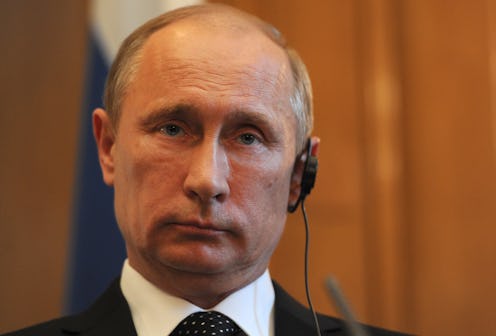News
Russia Unconvinced by U.S. Evidence on Syria
In spite of Kerry's announcement Saturday in which he claimed to have proof that Sarin gas was used by the Syrian regime last month, Russian officials remain unconvinced and completely against military intervention.
“We were shown certain pieces of evidence that did not contain anything concrete, neither geographical locations, nor names, nor evidence that samples had been taken by professionals,” Foreign Minister Sergey V. Lavrov said Monday.
“There are no facts, there is simply talk about ‘what we definitely know.’ But when you ask for more detailed evidence, they say that it is all classified, therefore it cannot be shown to us. This means there are not such facts to encourage international cooperation,” he added.
On Friday, President Barack Obama stated his intention of punitively striking Syria in response to last month's chemical attacks — which killed over 1,400 civilians and were allegedly orchestrated by the Syrian regime — but added that no moves will be made without Congressional approval.
Lavrov warned that if the U.S. does go through with military strikes, then it would be impossible to hold discussions regarding peaceful political transitions in Syria.
“If action announced by the U.S. president does take place after all, to our deepest regret, then [...] the prospects of this forum are being put off for a long time, if not forever,” the Foreign Minister said.
Lavrov also cautioned that, should the U.S. go through with the strikes without the consent of the United Nations Security Council — of which Russia is a part, with veto power — then it would render the council redundant and dysfunctional.
“If someone tries to make gross violations of international law a norm, then we will create chaos,” Mr. Lavrov said. “We will create a situation where the U.N. Charter and the principles under which all the nations of the world have signed up, including the principle of unanimous agreement of the permanent members of the U.N. Security Council, the so-called right of veto, which the United States insisted on, then all of these principles will simply collapse.”
Meanwhile, French Prime Minister Jean-Marc Ayrault is due to present evidence proving that Syria has collected over 1,000 tonnes of chemical agents to parliamentary leaders on Monday.
"We are going to give the MPs everything we have — classified until now — to enable every one of them to take on board the reality of the unacceptable attack," Ayrault told journalists.
But the head of the french foreign affairs committee, Elisabeth Guigou, reiterated Monday that France is ready and willing to intervene militarily in Syria even without parliamentary approval.
"In a complicated situation like this, we need to stick to principles, in other words the constitution, which does not oblige the president to hold a vote, nor even a debate," said Guigou.
The U.S. won't make any moves until Congress resumes on September 9, at which point the motion will be debated and voted on.
